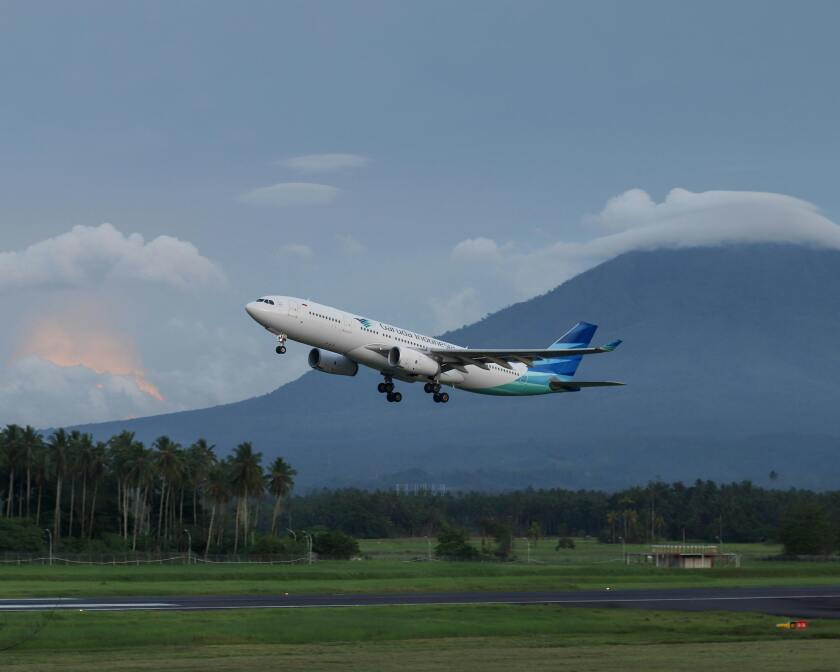To support the Indonesian public’s purchasing power and stimulate the national economy during the school holiday period, a government-borne VAT (VAT DTP) incentive has been offered for domestic scheduled commercial economy-class air transportation services for the 2025 fiscal year.
Under Minister of Finance Regulation No. 36 of 2025 concerning a Government-Borne VAT Incentive for Public Air Transportation Services, the government will cover 6% of the VAT due on the ‘replacement value’, which serves as the basis for calculating VAT, includes the base fare, a fuel surcharge, and other fees paid by the passenger. The remaining 5% will be borne by the passenger.
The VAT DTP incentive applies to tickets purchased and flights taken between June 5 and July 31 2025.
The requirements for taxable ‘entrepreneurs’ of air transportation business entities (PKP) are as follows:
The PKP utilising the VAT DTP incentive must issue a tax invoice or a similar document reflecting a VAT value of 5% of the replacement value and report it in the periodic VAT return.
The VAT DTP must be reported in the section of the VAT return designated for deliveries receiving VAT or luxury tax facilities, using a tax invoice.
The PKP must prepare a detailed list of VAT DTP transactions for air transportation services and include it in the VAT DTP report for the relevant tax period, to be submitted by September 30 2025.
Preliminary refunds of tax overpayments for certain taxpayers
To provide legal certainty in determining low-risk taxable entrepreneurs and to facilitate the implementation of preliminary refunds of tax overpayments, the director general of taxes (DGT) has issued Regulation No. PER-6/PJ/2025 concerning Implementation of Preliminary Refunds of Tax Overpayments for Taxpayers with Certain Criteria, Low-Risk Taxable Entrepreneurs, and Special Purpose Companies or Collective Investment Contracts as Low-Risk Taxable Entrepreneurs.
The regulation became effective as of May 21 2025, with the following key highlights:
Low-risk taxable entrepreneurs – low-risk taxable entrepreneurs (as referred to in Article 13, paragraph 2, letter f of Minister of Finance Regulation No. 39/PMK.03/2018) are not required to obtain a formal designation from the DGT. Such entrepreneurs are not required to submit an application for designation.
Applications for preliminary refunds – preliminary refund applications may be submitted by taxpayers that meet certain criteria. Low-risk taxable entrepreneurs conducting particular activities will be processed in accordance with the provisions of Minister of Finance Regulation No. 39/PMK.03/2018.
Refunds for previous tax periods – preliminary refund applications submitted by taxpayers that meet certain criteria or low-risk taxable entrepreneurs covering preliminary refunds for tax returns or corrections of tax returns for tax periods, parts of tax years, or tax years prior to or after the taxpayer is designated a taxpayer that meets certain criteria or a low-risk taxable entrepreneur will be processed accordingly.
Special purpose companies or collective investment contracts – special purpose companies or collective investment contracts classified as low-risk taxable entrepreneurs may be granted preliminary refunds on VAT overpayments for the tax period in which the asset is acquired, subject to the submission of an application in accordance with the provisions of Minister of Finance Regulation No. 200/PMK.03/2015.
VAT overpayments for low-risk taxable entrepreneurs – for preliminary refund applications on VAT overpayments submitted by special purpose companies or collective investment contracts classified as low-risk taxable entrepreneurs, the DGT will issue a notification letter stating that a preliminary refund application has been received. The VAT overpayment will be further processed in accordance with Article 17B of the General Tax Provisions and Procedures Law.
This regulation aims to streamline the process for obtaining preliminary refunds, reduce administrative burdens, and provide greater legal certainty for eligible taxpayers.
Circular clarifies Multilateral Instrument impact on Indonesia–Tunisia tax treaty
The DGT has issued Circular Letter No. 7/PJ/2025 concerning the Application of the BEPS Multilateral Instrument to the Indonesia–Tunisia Double Taxation Avoidance Agreement and thereby confirmed that the instrument applies to the treaty in question. The aim is to eliminate double taxation and prevent tax evasion or avoidance, including treaty shopping.
The principal provisions of the convention applicable to the Indonesia–Tunisia double taxation avoidance agreement (DTAA) are as follows:
Preamble replacement (Article 6, paragraph 1) – the preamble of the Indonesia–Tunisia DTAA is replaced to emphasise that the agreement aims to eliminate double taxation without creating opportunities for non-taxation or reduced taxation through evasion or avoidance, including treaty shopping arrangements.
Entitlement to benefits (Article 7, paragraph 1) – the benefits of the DTAA may be denied if obtaining such benefits is one of the main purposes of a transaction or arrangement, unless granting the benefits aligns with the object and purpose of the relevant provisions.
The following adjustments are provided for regarding the taxation of assets and entities:
Taxation of gains from the alienation of shares (Article 9, Paragraph 4) – the gains of a resident of one contracting state from the sale of shares or similar interests in entities (such as partnerships or trusts) deriving more than 50% of their value from immovable property in the other contracting state (at any time within the 365 days prior to the transfer) may be taxed in that other state.
Definition of permanent establishment (PE) (articles 12 and 13):
Agency PE (Article 12, paragraph 1) – the definition is expanded to include parties who habitually conclude contracts or play a principal role in concluding contracts on behalf of an enterprise;
Dependent agent (Article 12, paragraph 2) – a party who acts exclusively or almost exclusively on behalf of a closely related company is not considered an independent agent; and
Exclusion of PE activities (Article 13, paragraph 2, option A, and paragraph 4) – this clarifies certain activities excluded from the definition of a PE and introduces anti-fragmentation rules to prevent the artificial avoidance of PE status.
Construction PE period (Article 14, paragraph 1) – the convention applies to Article 5 of the Indonesia–Tunisia DTAA, clarifying the period for which a building site, construction project, or installation project constitutes a PE.
Definition of closely related party (Article 15, paragraph 1) – Article 15 defines a closely related individual or entity as one that controls, or is controlled by, the other, or both are controlled by the same party, or when one party directly or indirectly owns more than 50% of the rights or shares in the other.
Transfer pricing corresponding adjustment (Article 17, paragraph 1) – Article 17 of the convention applies to Article 9 of the Indonesia–Tunisia DTAA. This means that if there is an adjustment to a company's profits in one contracting state under the treaty, the other contracting state must make a corresponding adjustment to the profits of related parties connected to that company.
These provisions ensure that the Indonesia–Tunisia DTAA is aligned with international standards to prevent tax avoidance and treaty abuse, while providing clarity on the taxation of cross-border transactions and the definition of PEs.













